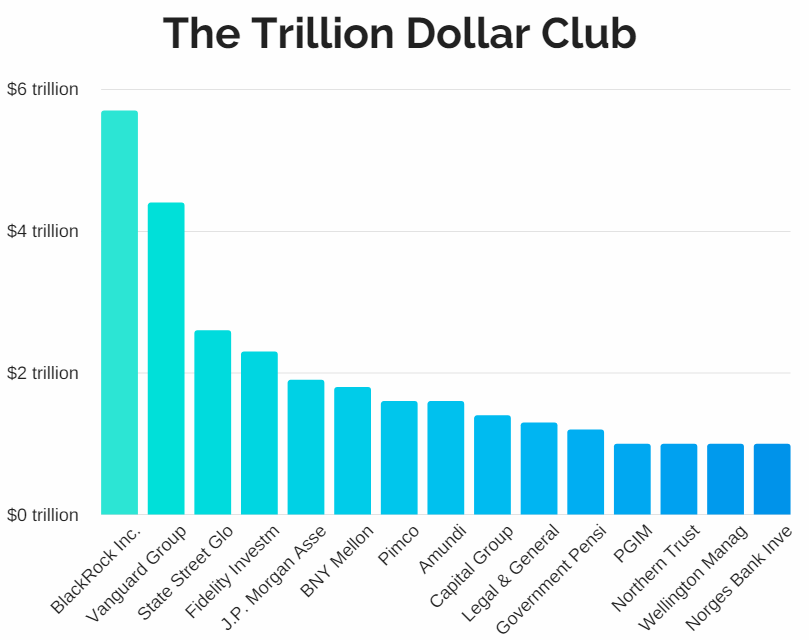
Generational wealth is not a new concept. The concept refers to a family’s financial stability and their willingness share their success with their next generation. It is not easy to preserve such wealth for generations.
There are many ways you can build wealth and pass it on to your children. Saving for retirement and paying down debt are two of the best ideas. You can also build wealth by buying and selling real estate. Real estate can provide a lifetime of investment opportunities for you and your kids. Although this strategy can create wealth, there will be some risk upfront. However, the rewards can often be irreplaceable.
A family trust is the best way to start. A trust allows you and your family to transfer your assets without having to worry about probate or paying certain taxes. A trust can be adapted to your family's requirements and goals.

Another way to build and pass on generational wealth is through a small business. Many family-owned businesses survive to the second generation. The best part is that the business can continue to be profitable after the owner has passed away. Investing in stocks can also be a good option. Stocks have historically outperformed inflation.
Another option is to make a purchase in life insurance. This isn't for everyone but it can be a smart investment for young, healthy people. If you begin early, life insurance often has lower premiums. Also, it's a good idea for you to create an emergency fund. This will help you to plan for unexpected expenses.
A lot of people can agree with the old saying that "if there is no savings, you will borrow". You can take risks with a good savings program. By leveraging your retirement funds, you can achieve this.
An advisor can help you to understand all your options. These professionals can help to create a wealth building strategy that is personalized for you. They can answer your questions and guide you through the process, all for a fee.

Besides the obvious, a wise steward might also choose to put some money in a tax-advantaged retirement account. This account is particularly helpful for younger families. After all, it's easier to save for something you'll need in the future than it is to pay off bills today.
You should look at the larger picture. It is important to align your financial goals with your family's core beliefs in order for you to create and pass on generations of wealth. The key is to make the best choices that will give you and your family the happiest, most financially secure future.
The best way to do this is by having an integrated wealth plan that includes both your financial and your legacy plans. The following topics should be included in your financial plan: investment advice, tax planning, estate planning, risk management.
FAQ
What is personal finance?
Personal finance is about managing your own money to achieve your goals at home and work. This involves knowing where your money is going, what you can afford, as well as balancing your wants and needs.
If you master these skills, you can be financially independent. This means you are no longer dependent on anyone to take care of you. You're free from worrying about paying rent, utilities, and other bills every month.
It's not enough to learn how money management can help you make more money. It makes you happier overall. You will feel happier about your finances and be more satisfied with your life.
So, who cares about personal financial matters? Everyone does! The most searched topic on the Internet is personal finance. Google Trends has shown that searches for personal finance have increased 1,600% from 2004 to 2014.
People use their smartphones today to manage their finances, compare prices and build wealth. These people read blogs like this one and watch YouTube videos about personal finance. They also listen to podcasts on investing.
Bankrate.com estimates that Americans spend on average 4 hours per day viewing TV, listening to music and playing video games, as well reading books and talking with friends. That leaves only two hours a day to do everything else that matters.
Personal finance is something you can master.
Is there a way to make quick money with a side hustle?
If you want to make money quickly, it's not enough to create a product or a service that solves an individual's problem.
It is also important to establish yourself as an authority in the niches you choose. It means building a name online and offline.
The best way to build a reputation is to help others solve problems. It is important to consider how you can help the community.
Once you have answered this question, you will be able immediately to determine which areas are best suited for you. There are many opportunities to make money online. But they can be very competitive.
However, if you look closely you'll see two major side hustles. The first type is selling products and services directly, while the second involves offering consulting services.
Each approach has its advantages and disadvantages. Selling products and services can provide instant gratification since once you ship the product or deliver the service, payment is received immediately.
However, you may not achieve the level of success that you desire unless your time is spent building relationships with potential customers. You will also find fierce competition for these gigs.
Consulting allows you to grow and manage your business without the need to ship products or provide services. But it takes longer to establish yourself as an expert in your field.
To be successful in either field, you must know how to identify the right customers. This takes some trial and errors. It pays off in the end.
Why is personal finances important?
For anyone to be successful in life, financial management is essential. We live in a world with tight finances and must make tough decisions about how we spend our hard earned cash.
So why do we put off saving money? What is the best thing to do with our time and energy?
Yes and no. Yes, most people feel guilty saving money. Because the more money you earn the greater the opportunities to invest.
You'll always be able justify spending your money wisely if you keep your eyes on the bigger picture.
To become financially successful, you need to learn to control your emotions. You won't be able to see the positive aspects of your situation and will have no support from others.
You may also have unrealistic expectations about how much money you will eventually accumulate. This could be because you don't know how your finances should be managed.
These skills will allow you to move on to the next step: learning how to budget.
Budgeting is the practice of setting aside some of your monthly income for future expenses. You can plan ahead to avoid impulse purchases and have sufficient funds for your bills.
Once you have mastered the art of allocating your resources efficiently, you can look forward towards a brighter financial tomorrow.
How can a beginner make passive income?
Learn the basics and how to create value yourself. Then, find ways to make money with that value.
You might have some ideas. If you do, great! You're great!
Finding a job that matches your interests and skills is the best way to make money online.
You can create websites or apps that you love, and generate revenue while sleeping.
But if you're more interested in writing, you might enjoy reviewing products. Or if you're creative, you might consider designing logos or artwork for clients.
No matter what you choose to concentrate on, it is important that you pick something you love. That way, you'll stick with it long-term.
Once you have found a product/service that you enjoy selling, you will need to find a way to make it monetizable.
There are two main options. One is to charge a flat rate for your services (like a freelancer), and the second is to charge per project (like an agency).
Either way, once you have established your rates, it's time to market them. It can be shared on social media or by emailing your contacts, posting flyers, and many other things.
These are three ways to improve your chances of success in marketing your business.
-
You are a professional. When you work in marketing, act like one. You never know who may be reading your content.
-
Know your subject matter before you speak. No one wants to be a fake expert.
-
Spam is not a good idea. You should avoid emailing anyone in your address list unless they have asked specifically for it. You can send a recommendation to someone who has asked for it.
-
Make sure to choose a quality email provider. Yahoo Mail, Gmail, and Yahoo Mail are both free.
-
Monitor your results. Track who opens your messages, clicks on links, and signs up for your mailing lists.
-
Your ROI can be measured by measuring how many leads each campaign generates and which campaigns convert the most.
-
Ask for feedback: Get feedback from friends and family about your services.
-
Try different strategies - you may find that some work better than others.
-
You must continue learning and remain relevant in marketing.
What is the limit of debt?
It is vital to realize that you can never have too much money. If you spend more than you earn, you'll eventually run out of cash because it takes time for savings to grow. When you run out of money, reduce your spending.
But how much should you live with? There is no universal number. However, the rule of thumb is that you should live within 10%. That way, you won't go broke even after years of saving.
This means that even if you make $10,000 per year, you should not spend more then $1,000 each month. If you make $20,000, you should' t spend more than $2,000 per month. Spend no more than $5,000 a month if you have $50,000.
This is where the key is to pay off all debts as quickly and easily as possible. This includes credit card bills, student loans, car payments, etc. You'll be able to save more money once these are paid off.
You should consider where you plan to put your excess income. You may lose your money if the stock markets fall. If you save your money, interest will compound over time.
Consider, for example: $100 per week is a savings goal. In five years, this would add up to $500. You'd have $1,000 saved by the end of six year. In eight years you would have almost $3,000 saved in the bank. By the time you reach ten years, you'd have nearly $13,000 in savings.
Your savings account will be nearly $40,000 by the end 15 years. Now that's quite impressive. However, if you had invested that same amount in the stock market during the same period, you'd have earned interest on your money along the way. Instead of $40,000 in savings, you would have more than 57,000.
It's crucial to learn how you can manage your finances effectively. If you don't do this, you may end up spending far more than you originally planned.
How do wealthy people earn passive income through investing?
There are two main ways to make money online. Another way is to make great products (or service) that people love. This is called "earning" money.
Another way is to create value for others and not spend time creating products. This is known as "passive income".
Let's say that you own an app business. Your job is development apps. But instead of selling the apps to users directly, you decide that they should be given away for free. That's a great business model because now you don't depend on paying users. Instead, you rely upon advertising revenue.
To sustain yourself while you're building your company, you might also charge customers monthly fees.
This is how most successful internet entrepreneurs earn money today. Instead of making things, they focus on creating value for others.
Statistics
- 4 in 5 Americans (80%) say they put off financial decisions, and 35% of those delaying those decisions say it's because they feel overwhelmed at the thought of them. (nerdwallet.com)
- These websites say they will pay you up to 92% of the card's value. (nerdwallet.com)
- U.S. stocks could rally another 25% now that Fed no longer has ‘back against the wall' in inflation fight (marketwatch.com)
- Shares of Six Flags Entertainment Corp. dove 4.7% in premarket trading Thursday, after the theme park operator reported third-quarter profit and r... (marketwatch.com)
- Etsy boasted about 96 million active buyers and grossed over $13.5 billion in merchandise sales in 2021, according to data from Statista. (nerdwallet.com)
External Links
How To
For cash flow improvement, passive income ideas
There are many online ways to make extra money without any hard work. Instead, there are passive income options that you can use from home.
Automation could also be beneficial for an existing business. If you are considering starting your own business, automating parts can help you save money and increase productivity.
The more automated your company becomes, the more efficient you will see it become. This allows you to spend more time growing your business than managing it.
Outsourcing is a great way of automating tasks. Outsourcing allows your business to be more focused on what is important. You are effectively outsourcing a task and delegating it.
This allows you to concentrate on the core aspects of your company while leaving the details to someone else. Outsourcing helps you grow your business by removing the need to manage the small details.
It is possible to make your hobby a side hustle. Using your skills and talents to create a product or service that can be sold online is another way to generate extra cash flow.
If you like writing, why not create articles? There are many places where you can post your articles. These websites allow you to make additional monthly cash by paying per article.
Making videos is also possible. Many platforms allow you to upload videos to YouTube or Vimeo. These videos can drive traffic to your website or social media pages.
Stocks and shares are another way to make some money. Investing in stocks and shares is similar to investing in real estate. However, instead of paying rent, you are paid dividends.
As part of your payout, shares you have purchased are given to shareholders. The amount of the dividend depends on how much stock you buy.
You can reinvest your profits in buying more shares if you decide to sell your shares. This will ensure that you continue to receive dividends.